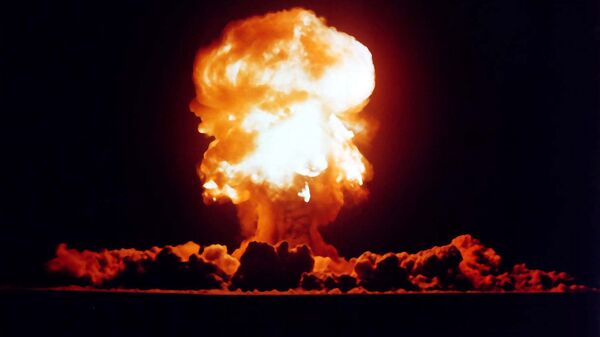MUNICH (Sputnik), Darya Chernyshova — "If the treaty is not in force, we cannot go in an intrusive manner onto a country… to prove that it did a nuclear test," Lassina Zerbo said.
He added that CTBT's role is to be a deterrent that would stop any cheater from doing a test.
"If the international monitoring system and the verification regime is so strong it gives strength to prevent those cheaters [from nuclear testing]," Zerbo said adding that North Korean nuclear tests demonstrate urgent necessity of such a treaty.
The treaty, aiming to create a legally binding prohibition on nuclear explosive tests for all its parties, will enter into force when China, Egypt, India, Iran, Israel, North Korea, Pakistan and the United States ratify it.
In 2005, North Korea declared itself a nuclear power. It has conducted four underground nuclear weapon tests — in 2006, 2009, 2013 and 2016, which have raised concerns among the international community.
Zerbo also said that the ratification of the Comprehensive Nuclear-Test-Ban Treaty should not be an issue separating the US Democrats and the Republicans, because it concerns the matter of national security.
"It should not be an issue of the Democrats against the Republicans. If it is an issue that is important for the US national security, that has to be a non partisan issue," Lassina Zerbo said.
He added that in order to achieve ratification of the treaty, people and the civil society should be educated and feel comfortable that this treaty "does fit into national security issues."
All five nuclear weapons states as recognized by the Treaty on the Non-Proliferation of Nuclear Weapons — the United States, China, Russia, France and the United Kingdom, are signatories to the Comprehensive Nuclear-Test-Ban Treaty.
The accord's entry into force would create a legally binding prohibition on nuclear explosive tests for all its parties after China, Egypt, India, Iran, Israel, North Korea, Pakistan and the United States ratified it.

